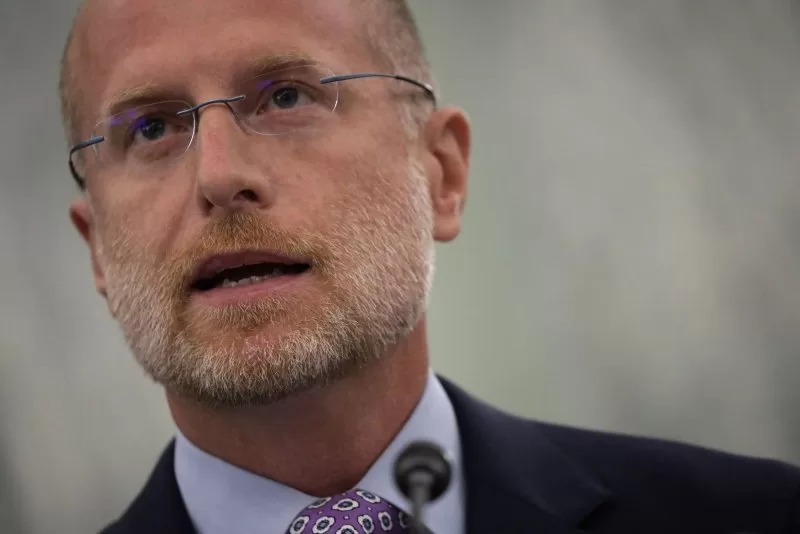Commissioner of Federal Communications Commission Brendan Carr was picked Sunday to be the next chairman of the regulator by President-elect Donald Trump. Pool Photo by Alex Wong/UPI |
License PhotoNov. 17 (UPI) — President-elect Donald Trump on Sunday announced he has picked Brendan Carr to be the next chairman of the Federal Communications Commission, which regulates the nation’s communications systems.
Carr, a Republican who is in his third term as the FCC’s commissioner, was first nominated to the regulator by Trump in 2017.
He also wrote Project 2025’s chapter on the FCC, laying out that the commission should rein in Big Tech — such as Google, Apple and Facebook — and protect national security, specifically from threats posed by China and Beijing-based TikTok, among other objectives.
“We must dismantle the censorship cartel and restore free speech rights for every day Americans,” he said on X shortly after the announcement of his nomination without explanation.
In a statement, Trump described Carr as “a warrior for Free Speech” who has “fought against the regulatory Lawfare that has stifled Americans’ Freedoms, and held back our economy.”
“He will end the regulatory onslaught that has been crippling America’s Job Creators and Innovators, and ensure that the FCC delivers for rural America.”
“Lead us into a great future, Brendan!” Trump said.
Carr said he was “humbled and honored” by the announcement.
“Now we get to work,” he said on X.
Carr made headlines most recently when he lashed out at Vice President Kamala Harris’ appearance on the final episode of Saturday Night Live before the Nov. 5 election, calling it a “clear and blatant effort to evade the FCC’s Equal Time rule.”
“The purpose of the rule is to avoid exactly this type of biased and partisan conduct — a licensed broadcaster using the public airwaves to exert its influence for one candidate on the eve of an election,” Carr wrote.
In the summer, Carr also came out against the FCC’s rule to make artificial intelligence-generated political content more transparent.
The rule requires political advertisers to disclose to the FCC if AI-created content is used in their TV or radio ads.
Carr described the rule as a “recipe for chaos.”
“Even if this rulemaking were completed with unprecedented haste, any new regulations would likely take effect after early voting already started,” he said. “Suddenly, Americans will see disclosures for ‘AI-generated content’ on some screens but not others, for some political ads but not others, with no context for why they see these disclosures or which part of the political advertisement contains AI.”
He also said Congress had not granted the FCC authority over political ads.

